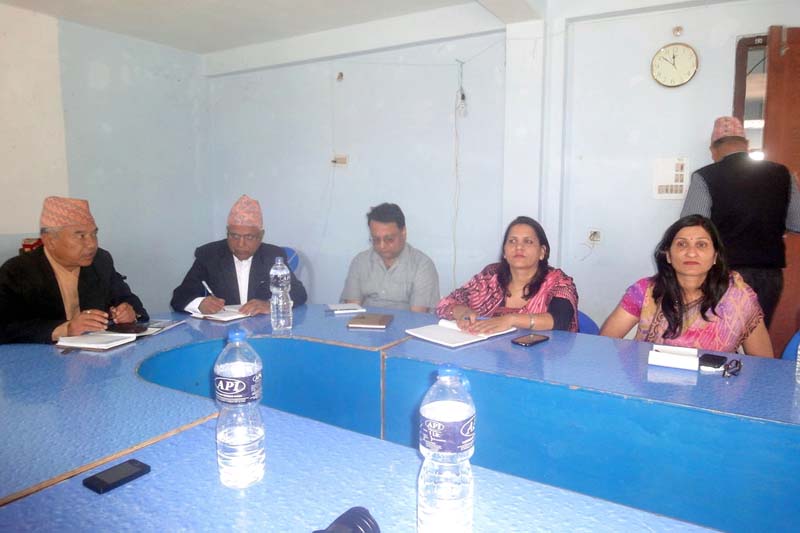Preliminary probe in six months: TRC
Kathmandu, April 15
The Truth and Reconciliation Commission has prepared an ‘implementation plan’ for probing insurgency-era rights violation cases and recommending action against perpetrators and reparation for victims.
The plan has set a target of completing preliminary investigation into more than 58,000 rights violation complaints in six months. Likewise, it has mooted conducting detailed investigation of serious cases, establishing facts, recommending reparation for victims and action against perpetrators and submitting the final report to the government by 9 February 2018.
Senior TRC member Lila Udasi Khanal said the implementation plan has incorporated a 10-month work-schedule.
The transitional justice body’s term was extended by one year on February 10.
As per the plan, conflict victims will again be given chance to lodge complaints as many of them could not register their cases last year.
TRC had carried out a nationwide complaint receiving drive from mid-April to mid-July in 2016, during which at least 58,052 human rights violation cases were collected. They were allegedly committed during the decade-long Maoist insurgency.
Investigation into these complaints is yet to begin due to lack of proper implementation guideline, conflict among TRC members and the long absence of its Chairman Surya Kiran Gurung, who has not reported to work for the last two months.
As per the plan, preliminary investigation of complaints will be conducted from May 8 till mid-October. Khanal, however, said some works mooted in the draft would require revision considering the upcoming local polls on May 14.
“We have sensed that some targets set in our implementation plan will be affected by elections,” he said. “So, we will complete internal and preparatory work until the elections.”
Khanal said many cases would be settled during preliminary investigation and detailed investigation would be conducted on serious cases in a phase-wise manner once the preliminary investigation was completed.
Meanwhile, TRC faces human resource crunch as four of its gazetted second-class officers have been deputed for elections. “The deputation of senior staffers will impact our overall work at a time when we need more staffers,” Khanal argued.
He further expressed concern about more staffers being pulled away during elections.






